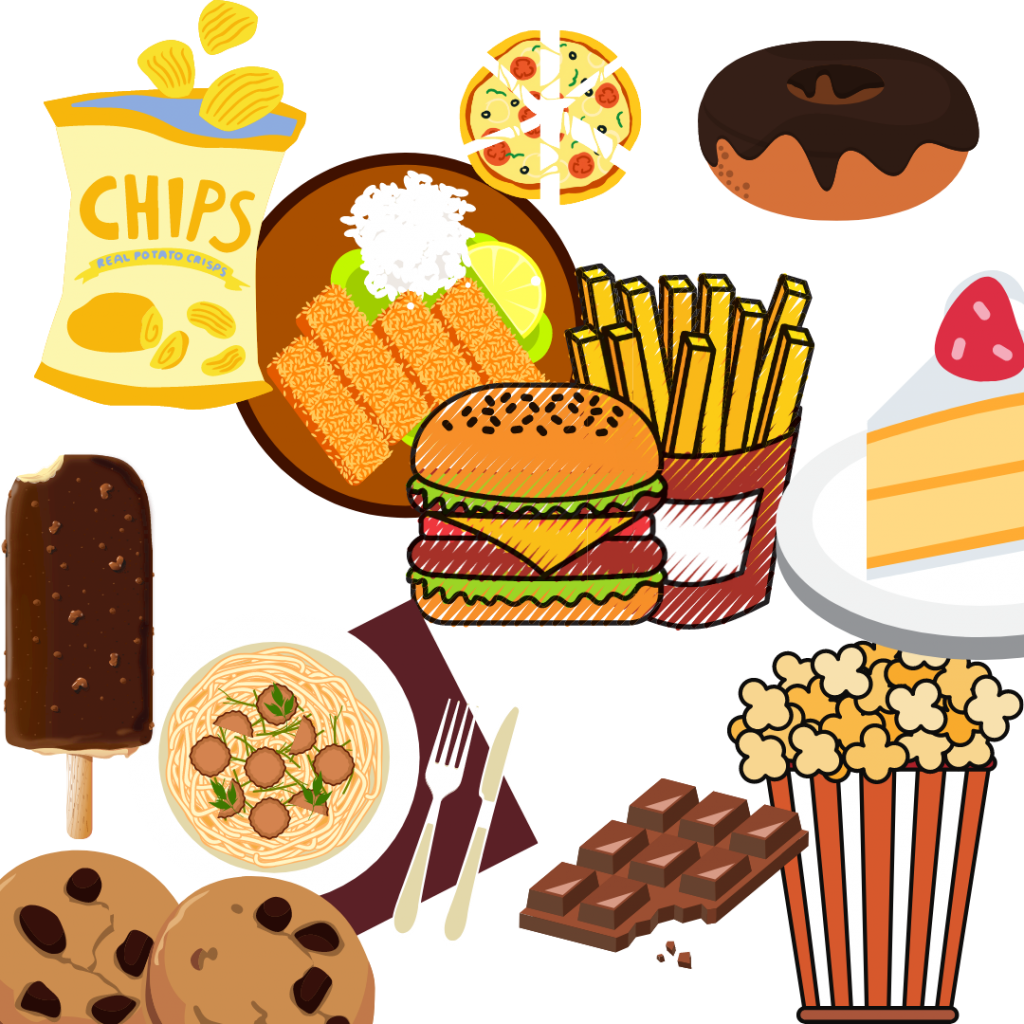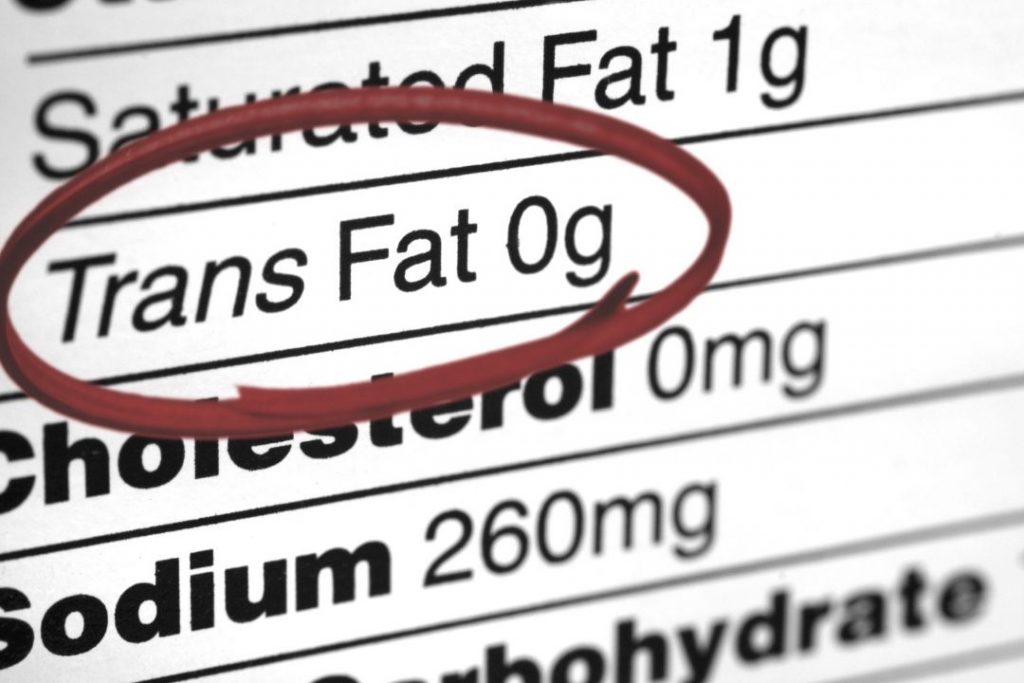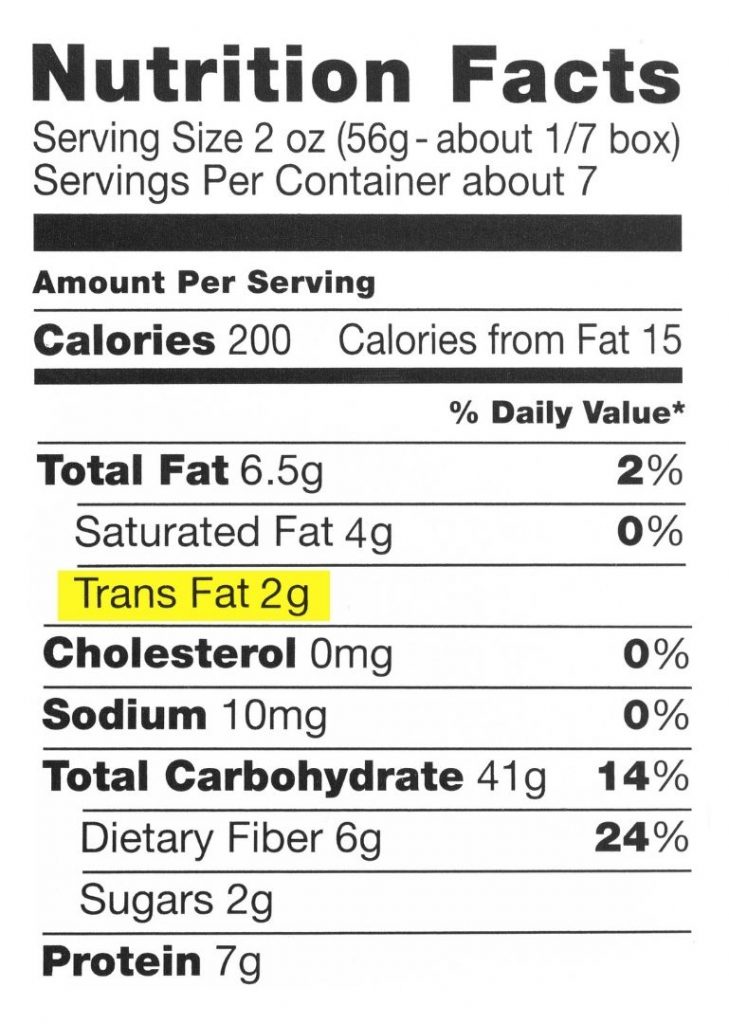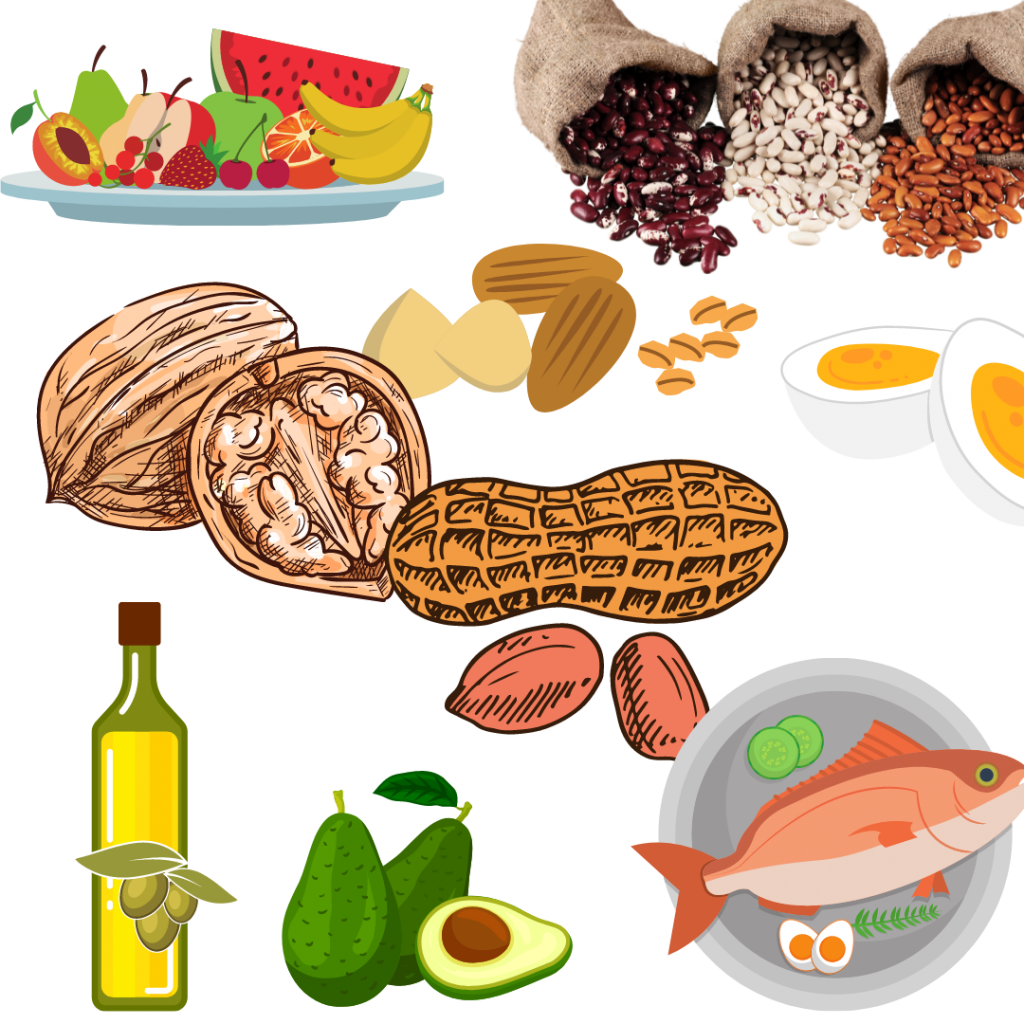In 2018, World Health Organisation (WHO) launched a REPLACE campaign to globally eliminate trans fats by 2023 in edible oils produced industrially.
Different kinds of Fats
Fatty acids are the building blocks of fat. They are long chains of carbon and hydrogen atoms. Fatty acids that are essential for our body can only be obtained through food. However, some fats are harmful.

Unsaturated fats – These are so-called “good” fats. It can be found in nuts, avocados, vegetable oils (olive oil, sunflower oil), and other vegetables. Its molecular structure causes it to be lower in calories as compared to other fats. These can be monounsaturated and polyunsaturated fats – they tend to be more liquid and are beneficial as they lower bad cholesterol levels in our body. The two types of polyunsaturated fats are omega-3 and omega-6 fatty acids.

Saturated fats – These fats are mostly found in animal products, milk, and cheese. Fish and poultry have less saturated fat than red meat. It is normally recommended that people should reduce their consumption of saturated fats to stay healthy.

Trans fats – These are unsaturated (good) fats that have been partially saturated with hydrogen to extend their shelf life and make the fat solid. Harder fat makes crispier snacks. Unfortunately, these are found to elevate “bad” cholesterol and therefore should be avoided. TFA poses higher risks than saturated fats.
While saturated fats raise total cholesterol levels, TFAs not only raise total cholesterol levels but also reduces good cholesterol, which helps to protect us against heart-related diseases.
The WHO has warned India, Pakistan, Bangladesh, Nepal, Bhutan, and other countries to act urgently against the use of trans fats.
What are Trans Fats / Trans Fatty Acid (TFA)?
Trans fats should not be used as part of our diet. Trans fats raise the bad cholesterol and lower the good cholesterol in our body. Therefore, they are the worst type. High consumption can lead to heart diseases, diabetes, high blood pressure, obesity, infertility, and some types of cancers too. Trans fats can have a very harmful effect on our bodies.
Largely trans fats are produced artificially. But a small amount also occurs naturally like in red meat and dairy products.
Artificial TFAs are created in an industrial process where hydrogen is made to react with the oil to make them more solid. The final product resembles pure ghee/butter. They are called partially hydrogenated vegetable oils ( e.g vanaspati/ margarine ).
These are used by manufacturers because it increases the shelf life of food items. Moreover, they are comparatively cheaper than other, healthier choices that do not affect taste or cost. That is why they are increasingly being used as they raise the profit margin. They can easily substitute pure ghee and are present in fried, baked, and snack foods.
How to avoid trans fat?
- ”Vanaspati” ghee is not at all recommended. It is very high in trans fats.
- While deep frying the foods, neither heat the oil for a long time nor leave the food in the oil for a longer period.
- Not to reheat the oil or re-use the same cooking oil for repeated frying as it increases the percentage of trans fats in it and is harmful to the health.
- Limit the consumption of processed or baked foods like biscuits, chips, cookies, patty, cakes, rusk, fried mixtures (like nankeens, etc).

- Check the nutrition fact information on the packaged food items for trans fat content.
- Sometimes the food products do not mention the word trans fat/ trans fatty acid. In such scenarios, check the ingredients column for the words like “partially hydrogenated vegetable oil” or “shortening”. These kinds of products contain a high amount of trans fats. If they are mentioned then choose a healthier alternative.


- Avoid consuming commercially fried foods like samosa, fried chat, etc that are prepared in “Vanaspati” ghee.
- If possible, when eating at a restaurant, ask the server regarding the type of oil being used.
- These days trans fat-free logo is also being used on some products. Check out these logos.
- Use un-hydrogenated oils like olive oil, safflower, or sunflower oil.
- Look for processed food that is made in unhydrogenated oil rather than partially hydrogenated or hydrogenated vegetable oils or saturated fat.
- Further, one can change the dietary pattern and emphasize taking fruits, vegetables, whole grains, nuts, low-fat dairy products, fish, legumes, and poultry. Also, limit the use of red meat, beverages, and sugary foods.


1 comment
Excellent article! Very informative 👌👌
Comments are closed.